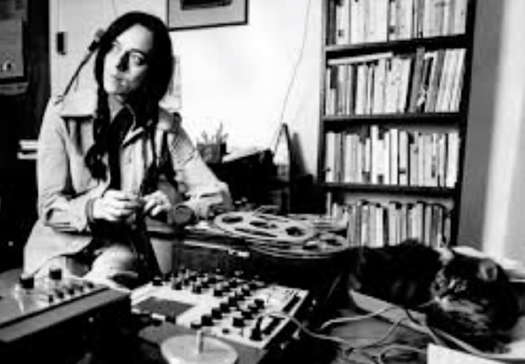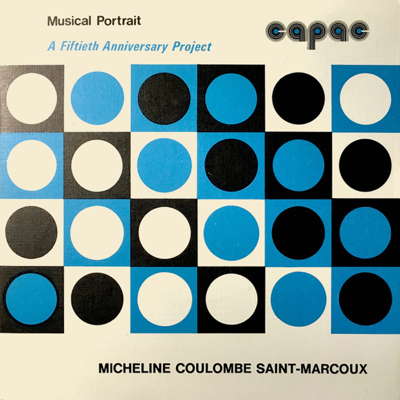 WORD SEARCH: Can you solve Allan Rae's classical music word search puzzles? We're currently publishing one per month.
WORD SEARCH: Can you solve Allan Rae's classical music word search puzzles? We're currently publishing one per month.
Sound Sense and Nonsense
Hans Rosbaud allegedly said (and if he did so he was paraphrasing his fellow Austrian Arnold Schoenberg) that 'new music is not difficult it is just badly played'. Rosbaud famously conducted, and conducted exceptionally well (to the eternal gratitude of many composers), first performances of many of the most extraordinary pieces written in the 1950s and early 60s. One of these pieces was György Ligeti's Atmosphères premiered by Rosbaud in 1961. A decade later Ligeti himself fell victim to Rosbaud's words when Zubin Mehta with the Los Angeles Philarmonic undertook the US premiere of his piece Melodien. A performance that made manifest (in stark contrast to Rosbaud), Mehta's superficial knowledge of the score and the obvious fact that he had not dedicated to the piece the rehearsal time that it warranted and left Ligeti incensed.
As bad as this sounds, Ligeti could consider himself relatively lucky especially when compared to what befell Micheline Coulombe Saint-Marcoux when The Montréal Symphony Orchestra commissioned a piece from her to be performed in 1970. The world premiere of Hétéromorphie on 14 April that year should have been a joyous moment of celebration in the life of a young composer. A great demonstration of the recognition of her talent from her native Quebec by having its most prestigious musical ensemble perform a new work of hers.
Listen — Micheline Coulombe Saint-Marcoux: Hétéromorphie (extract):
Lamentably the Montréal Symphony Orchestra's chief conductor at the time: maestro Decker had other ideas. In an interview she gave in 1973 she described the sorry scene that unfolded:
refusant d'installer les instrumentistes dans différents endroits de la salle, comme l'exigeait la partition, pour les regrouper sur scène afin de lui faciliter la direction. L'effet fut désastreux. Ce dernier fit tout pour saboter mon œuvre. Il la dirigeait n'importe comment. Apr&rgrave;s le concert, il m'a tourné le dos et s'est effacé en coulisse.
(He refused to place the musicians in different parts of the hall as the score demanded. He placed them all on the stage so that it was easier for him to conduct them. The effect was disastrous. He did everything to sabotage my piece. He didn't care how he conducted it. At the end of the performance he turned his back on me and slinked off backstage.)
I first discovered Micheline Coulombe Saint-Marcoux when I happened upon a second hand LP issued by Radio Canada, I say second hand although it was actually still sealed when I found it thirty years later. Usually if I find a recording of a composer I have never heard or even heard of, if I find the sleeve attractive and it is not too expensive it is usually enough to sway me. The sleeve of this particular LP was frankly atrocious in its nondescript ugliness, but I bought it. Why? I am not sure. I think it was her name. The fact that her name alone was half a haiku intrigued me enough to want to hear what kind of music this composer made, so I brought it home.
Coulombe - as I shall hereby refer to the composer; Saint-Marcoux was her husband's name - has a wonderful piece called Luminance and it is a title that could serve very well as a defining quality of all her music. A quality which bowled me over as I listened three times without interruption to my LP when I got home and put it on my turntable.
Listen — Micheline Coulombe Saint-Marcoux: Luminance (extract):
I was struck by the sheer musical intelligence and personality that shone through the delicately ravishing sonorous spectrum spilling out of the speakers. The strikingly refined richly sensuous textures and visceral strength that only made me more aware of the sure sense of structure and confident compositional acumen. I couldn't believe it when I checked the back of the LP that the huge and varied sounds of Mandala 1 were being made by a mere quintet of musicians. A fact which demonstrates a remarkable distribution of sonorities among only five players to create such a varied but at the same time big cohesive sound.
My favourite piece on the record is probably Regards - a chamber piece that includes notable contributions from a harp and a pre-recorded tape. Some of the tape sounds maybe seem a little too similar to Stockhausen's Gesang der Jünglinge for their own good but the piece as a whole casts quite a spell.
As Regards makes clear, Coulombe did compose electro-acoustic music but not exclusively so, the other two pieces on my LP are for acoustic forces only. For whatever reason however she has been pigeonholed as an electro-acoustic composer. I suppose this is due to the fact that she was a pioneer in this area in what was otherwise a very conservative milieu, namely the musical, educational and broadcasting institutions in Quebec. Sadly I also think that by labelling any composer with the tag electronic or electro-acoustic, it implies that the 'serious' music establishment doesn't have to take them seriously as 'real' composers. Added to that in what were almost exclusively male environments at the time, any means by which a woman composer could be devalued and not be considered as one among equals or even superior to her male colleagues was welcomed and indeed encouraged. For most in these environments the sheer fact of being a woman was reason enough to be considered inferior and not to be taken seriously or treated with the respect they dserved.

Micheline Coulombe Saint-Marcoux (1938-1985)
Coulombe always made it clear that she never considered herself an electronic, or at least solely electronic, composer. At the end of 1967, soon after that year's famous Expo in Montréal, she met Iannis Xenakis. She expressed her wish for a change of scene and he suggested that she go to Paris to work with Pierre Schaeffer, which she did. She stayed there for three years to learn what she could from various people about the techniques of electronic music. During these years she also realized what wasn't for her, namely the rigour of Gilbert Amy and what she considered the extreme authoritarianism of Nadia Boulanger. As soon as her time in France was up, she headed back to Quebec where she remained for the rest of her life, teaching, promoting new music and young Quebecois composers and composing music of various styles using what she had attained from her sojourn in France as just one of the many tools which helped her to develop her own musical language and find her voice.
When one reads interviews with Coulombe, even when it is not the most salient point of the conversation, the latent indifference and indeed hostile resistance to her and her music on the part of institutions whose mandate was the diffusion and promotion of music and musicians makes for unedifying and depressing reading. Despite the deliberate stalling tactics, closed doors, casually forgotten or allowed to lapse deadlines and refusal to give credit where credit was due, Coulombe never made any direct or public statement or complaint about the predicament of her situation as a woman in such a misogynistic milieu. Indeed she said quite the opposite:
Devenir compositeur, c'est choisir une voie parsemée de tels obstacles, telles embûches, que le fait d'être une femme n'en ajoute pas davantage.
(To become a composer is to choose a path strewn with so many obstacles and pitfalls that the fact of being a woman does not make it any harder.)
If only that were true and of course it should be totally true but Coulombe's own story and that of countless other women composers proves that it is still wishful thinking. One might wish to be extremely optimistic and believe that times have changed and that today being a woman is not a handicap for anyone who decides to be a composer or wants to be an orchestral musician, soloist or, God forbid, a conductor. Sadly, from all the evidence I have seen and read, such optimism is largely misplaced and women in these fields today are still the exceptions that prove the sexist rule.
Fifty years ago, odious and fatuous comments concerning women conductors and women orchestral players were all too frequent and all too tolerated, but you do not have to go back to the 1970s to encounter this kind of drivel. In the last decade conductors younger than myself - I am still on the good side of fifty, just - such as Vasily Petrenko and Bruno Mantovani (director at the time of the French National Conservatoire no less) have expressed barely believable and more importantly groundless and erroneous views about women in classical music with seeming impunity. This is even more staggering in Petrenko's case when one learns that he is married to a conductor. Or how about respected veteran conductor Yuri Temirkanov's 2013 wise pronouncement on the matter: 'The essence of the conductor's profession is strength. The essence of a woman is weakness.'

Micheline Coulombe Saint-Marcoux
It's probably extremely naïve on my part, but one would hope that in 2022, any conductor, man or woman, who got up to the same kind of antics as maestro Decker back in 1970 would have their contract terminated on the spot and be told to conduct themselves immediately to the exit. Franz-Paul Decker lived a long life, passing away in 2014 at the grand old age of ninety, honoured in many countries and recognized by most as a great conductor. Micheline Coulombe Saint-Marcoux died at the age of forty-six after a long battle with cancer, and she and her unique music have since seemingly resided in oblivion. To be fair to Radio Canada they did dedicate a five LP box to her music thankfully just before she passed away. I have looked for it many times but never come across it. Tantalisingly it has a string quartet (which I have never heard) that she composed in 1966. I am of the opinion that a string quartet a day keeps mediocrity at bay and am thus always desperate to hear any composed by composers I admire and whose music I love. While many conductors were/are exuding and exulting in their greatness, Hans Rosbaud was studying scores sufficiently and rehearsing them as much as was required so that he could actually play correctly what the composers had painstakingly taken so much time and effort to write as precisely as possible. It is a pity he couldn't have been in Montréal in 1970.

Album cover for Micheline Coulombe Saint-Marcoux: Musical Portrait
Today in Quebec's largest city in the midst of a group a pleasant looking townhouses you can find a humble small rectangular park named after Micheline Coulombe Saint-Marcoux. Maybe it is the perfect place to go to listen to those unique sounds where nature meets suburbia. Away from the noisy nonsense where sound and silence can reveal their luminous sense.
Copyright © 28 September 2022
Robert McCarney,
León, Spain

TWENTIETH CENTURY CLASSICAL MUSIC
ARTICLES ABOUT WOMEN COMPOSERS
ECHOES OF OBLIVION - FURTHER INFORMATION


